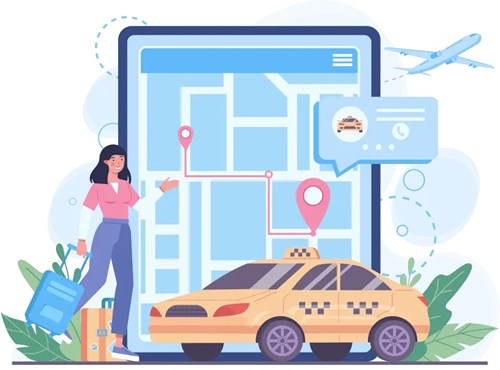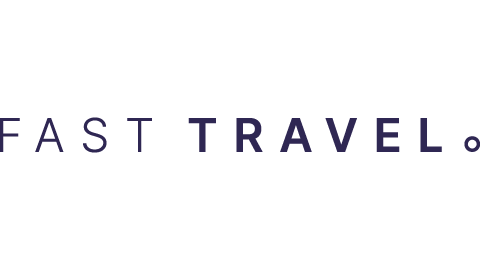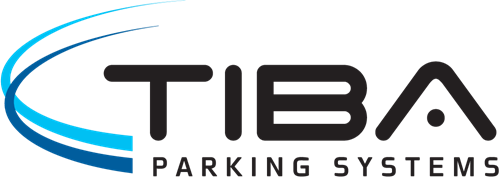Fast Travel: How Taxi Technology Is Transforming Taxi Management Solutions

Taxi services have been a critical component of efficient transportation for decades now. However, traditional taxi management systems often struggle to meet the increasing demand for convenience, speed, and reliability. So, it is no wonder that the taxi dispatch software market is expected to reach $1961.4M by 2031, growing at a CAGR of 17,5%. [1]
Yes, technology is a game-changer that is transforming taxi management solutions and setting new standards for the industry. How exactly? Let’s take a look together.
Seamless Booking and Dispatching
One of the most significant advancements in taxi management solutions is the integration of seamless booking and dispatching platforms. Gone are the days of calling a taxi service and waiting uncertainly for a ride.

Modern systems now offer real-time booking through apps and kiosks, where passengers can instantly connect with the nearest available driver.
Fast Travel’s innovative kiosks at Oslo Airport exemplify this trend. With user-friendly interfaces and real-time tracking, passengers can effortlessly book a taxi tailored to their specific needs, ensuring a smooth start to their journey.
Our kiosks offer a wide range of customizable options, enabling passengers to filter their taxi preferences based on their specific needs. For example, travelers can select the perfect taxi size depending on the amount of luggage they have. Families can effortlessly request a child’s seat, specifying the child's age to ensure the most suitable option is provided. Additionally, our kiosks are designed with inclusivity in mind, allowing wheelchair users to book cars that are easily accessible, ensuring a comfortable and convenient journey for everyone.
Advanced Fleet Management
 Fleet management has seen remarkable improvements with the advent of GPS tracking, telematics, and data analytics. Taxi companies can now monitor their entire fleet in real-time, optimizing routes, reducing fuel consumption, and improving overall efficiency. This taxi technology enables better decision-making, leading to reduced operational costs and improved customer satisfaction.
Fleet management has seen remarkable improvements with the advent of GPS tracking, telematics, and data analytics. Taxi companies can now monitor their entire fleet in real-time, optimizing routes, reducing fuel consumption, and improving overall efficiency. This taxi technology enables better decision-making, leading to reduced operational costs and improved customer satisfaction.
Learn more about what we did at the OSL
Enhanced Safety and Security
 Safety has always been a priority in the taxi industry, and technology has taken it to the nextlevel. Modern taxi management systems include features such as in-car cameras, panic buttons, and driver behavior monitoring. These tools help ensure the safety of both drivers and passengers, creating a more secure travel experience.
Safety has always been a priority in the taxi industry, and technology has taken it to the nextlevel. Modern taxi management systems include features such as in-car cameras, panic buttons, and driver behavior monitoring. These tools help ensure the safety of both drivers and passengers, creating a more secure travel experience.
Moreover, the integration of cashless payment systems has reduced the risk of theft and fraud, providing passengers with a safe and convenient way to pay for their rides.
Data-Driven Insights
By analyzing data from millions of rides, companies can gain valuable insights into passenger preferences, peak demand times, androute efficiency. This approa ch allows for more personalized services, better resource allocation, and continuous improvement of the overall passenger experience.
ch allows for more personalized services, better resource allocation, and continuous improvement of the overall passenger experience.
Fast Travel utilizes data analytics to refine its service offerings, ensuring that passengers always receive the best possible experience when they're booking through a kiosk. For instance, at Oslo Airport, drivers can now fine-tune their offers in real time based on supply and demand dynamics with our AI-powered Insights tool in a driver’s app. This enables them to tailor their services, such as offering higher-quality vehicles or competitive pricing, directly in response to customer preferences.
Sustainability Initiatives
Sustainability is a growing concern in the transportation industry, and taxi services are no exception. Modern taxi management systems are increasingly incorporating electric vehicles (EVs)  and hybrid cars into their fleets. Additionally, software that optimizes routes to reduce fuel consumption plays a crucial role in lowering the carbon footprint of taxi services.
and hybrid cars into their fleets. Additionally, software that optimizes routes to reduce fuel consumption plays a crucial role in lowering the carbon footprint of taxi services.
At Fast Travel, sustainability is a key priority. By promoting the use of eco-friendly vehicles and optimizing routes through cutting-edge technology, the company is committed to reducing its environmental impact while providing top-tier service. For instance, at the Oslo Gardermoen, up to 75% of all rides are serviced by zero-emission cars.
The Future of Taxi Management

As technology continues to evolve, so too will taxi management systems. The future holds exciting possibilities, including the integration of autonomous vehicles, AI-driven customer service, and even more advanced data analytics. These innovations promise to further streamline operations, enhance safety, and provide an unparalleled passenger experience.
Conclusion
The transformation of taxi management systems through technology is not just a trend—it's a necessity. As the industry continues to embrace innovation, passengers can look forward to more convenient, safe, and sustainable taxi services. Fast Travel remains dedicated to driving this transformation, ensuring that the future of taxi travel is bright and promising.
References:
[1] Taxi Dispatch Software Market Size, Share, Growth, and Industry Analysis, By Type (Cloud-based, Web-based), By Application (SMEs, Large Enterprises), Regional Insights, and Forecast From 2024 To 2031, Business Research Insights
 About Fast Travel
About Fast Travel
Fast Travel redefined the booking and management of taxis. With the software and hardware solutions, Fast Travel is helping airports take the taxi booking experience to the next level. With their fair market solutions, they support taxi drivers reduce waiting times and increase their earnings in a competitive market. Fast Travel is implemented at Oslo Airport with 28 million travellers and surrounding airport hotels. In 2023, we managed 230.000 taxi trips, 4.000 taxis, and 100+ taxi centrals.




Comments
There are no comments yet for this item
Join the discussion